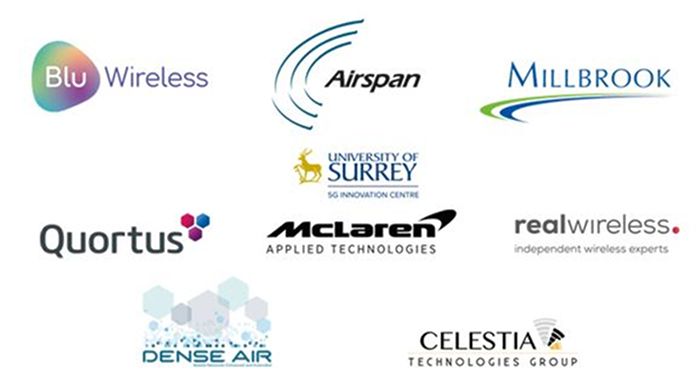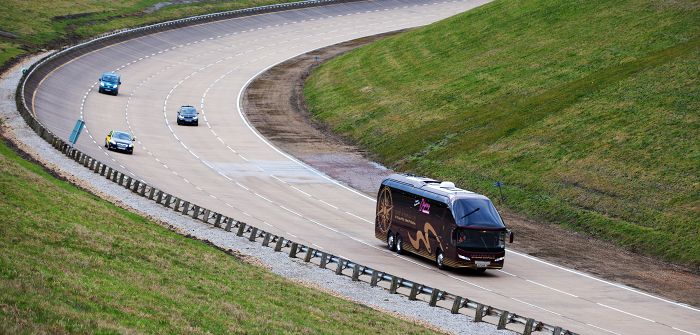The AutoAir project consortium has demonstrated the UK’s only independent 5G-enabled infrastructure for testing connected and autonomous vehicles (CAVs) for the first time at the Millbrook Proving Ground in Bedfordshire.
The consortium, led by Airspan Networks and hosted at Millbrook, is an accelerated program of 5G technology for CAV development. AutoAir’s launch event gave stakeholders in CAV development and 5G technology an opportunity to witness the transmission of data at 5G-like speeds of 1Gbps and understand the technical capabilities of 23 ‘small cell’ base station sites installed at the Proving Ground.
This was demonstrated by a number of vehicles traveling at speed on Millbrook’s High-Speed Circuit streaming live 4K video back to a screen on a bus that guests were traveling on.
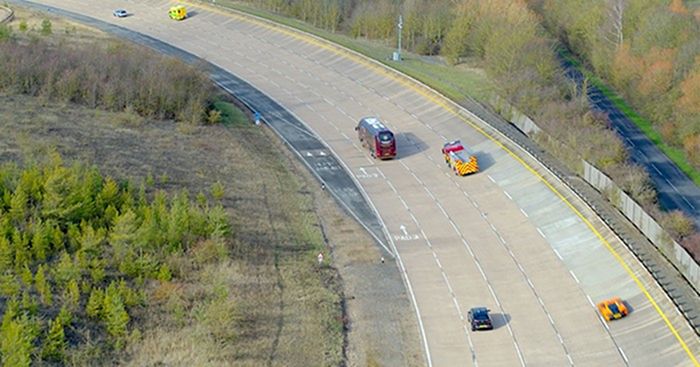
The public demonstration included the system delivering 1Gbps capacity to a McLaren sportscar traveling at 160mph (257km/h) on the high-speed bowl with handovers occurring every two seconds.
Led by Airspan Networks, the AutoAir project consortium also includes: Blu WirelessTechnology, McLaren Applied Technologies, the 5G Innovation Center at the University of Surrey, Dense Air, Real Wireless, Quortus and Celestia Technologies Group.
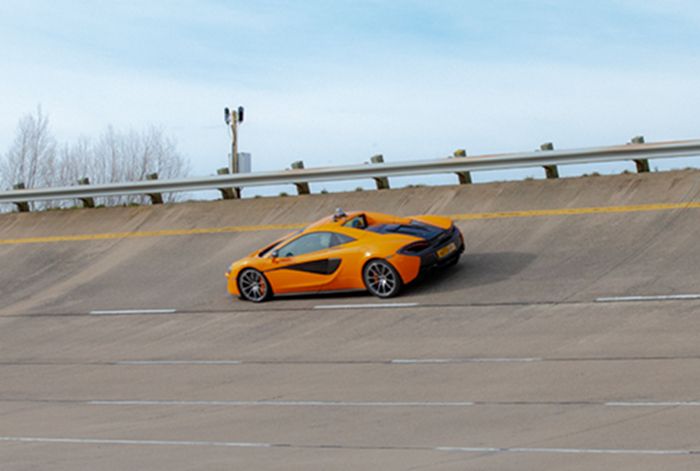 As part of the AutoAir project the mobile network infrastructure installed at Millbrook consists of:
As part of the AutoAir project the mobile network infrastructure installed at Millbrook consists of:
- 77 ‘small cell’ base stations, 46 of which are now live. These use 2.3GHz and 3.7GHz spectrum;
- 22 mmWave (60GHz) access points around the High-Speed Circuit;
- 59 masts: 38 for the small cell base stations, 11 for the mmWave access points and an additional 10 for the mmWave mesh backhaul around the Hill Route;
- 8 miles (19km) of fiber-optic cable;
- Over 43 miles (70km) of highly-specialized test tracks and multiple terrains.
CAV developers now have access to a low-latency, wide-area wireless infrastructure that will work seamlessly across the entire Proving Ground. This capability is crucial for the validation and testing of SAE Level 3 to Level 5 CAVs, which require high speed, real-time connectivity to compare the real world outcomes with the decision-making simulation.
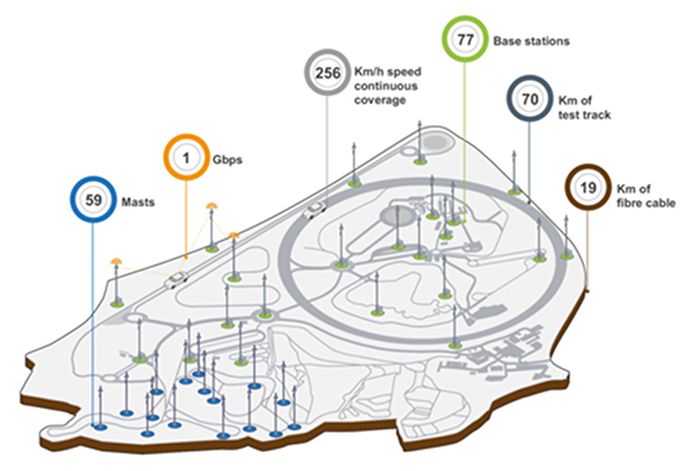 The infrastructure enables self-driving vehicle testing to be carried out in a secure environment using a private, tuneable mobile network. Developers can simulate weak and strong cell signals and understand the impact of hills and other terrain in a single location, while having access to all data generated during testing.
The infrastructure enables self-driving vehicle testing to be carried out in a secure environment using a private, tuneable mobile network. Developers can simulate weak and strong cell signals and understand the impact of hills and other terrain in a single location, while having access to all data generated during testing.
CAV developers can also create virtual events using augmented and virtual reality for vehicles on track, allowing them safely to test complex scenarios and edge cases. The 5G-enabled infrastructure makes it possible to monitor, gather and distribute vehicle test data such as video, telematics, tracking and control in real time.
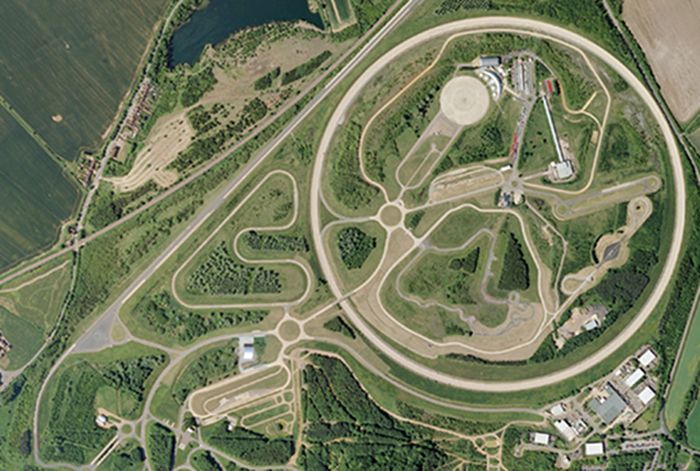 “AutoAir at Millbrook is one of the most ambitious 5G testbeds and trial sites in the world,” explained Paul Senior, CSO of Airspan Networks and CEO of Dense Air. “The project has now completed the deployment of a hyper-dense small cell network that delivers ultra-high capacities which enables a range of new CAV use cases to be explored.”
“AutoAir at Millbrook is one of the most ambitious 5G testbeds and trial sites in the world,” explained Paul Senior, CSO of Airspan Networks and CEO of Dense Air. “The project has now completed the deployment of a hyper-dense small cell network that delivers ultra-high capacities which enables a range of new CAV use cases to be explored.”
Alex Burns, president of Millbrook, added, “The installation of the UK’s first independent 5G network at Millbrook demonstrates our commitment to ensure that our facilities are at the forefront of automotive development. The infrastructure allows our customers to test and develop CAV systems to a quality and level of detail never before realized in this country.”
